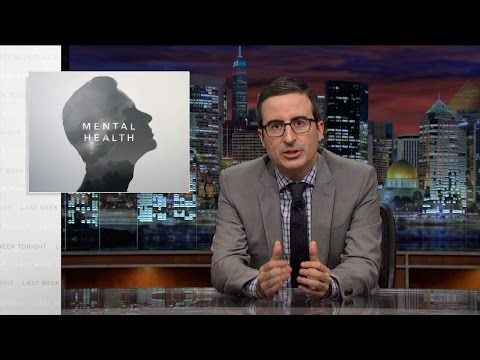John Oliver Calls Out GOP Candidates For Using Mental Illness To Cover Up Gun Control Issues

Mental illness made headlines last week after a mass shooting left 10 dead on an Oregon college campus and spurred a national conversation on how to prevent further killings. The national conversation pinned untreated mental illnesses against easy access to guns. However, on HBO's Last Week Tonight, John Oliver addressed the flaws in bringing up mental illness solely in the context of situational gun violence, because the mentally ill are rarely to blame for such violent ends.
Instead, he argues mental illness is only used in an effort to shield and steer away from questioning the proliferation of America’s gun accessibility. Oliver explains that although America is largely reluctant to talk about mental illness, when it is brought up it’s talked about in a largely unhealthy way or in the wake of a mass shooting. The most recent shooting at an Oregon community college left an English professor and eight others dead, along with the 26-year-old shooter.
Within hours, a total of 14 weapons, all of which were legally attained from a federal firearms dealer, were seized from the shooter’s possession. Republican presidential candidates were quick to blame the shooter’s possible mental illness despite the fact he was discharged from the U.S. Army with fears he would misuse firearms, yet had unimpeded access to them.
Despite the questionable gun accessibility, Oliver concedes to address how mental illness is mistreated in America. According to a national survey, an estimated 43.8 million American adults had a mental illness in 2013, making it a serious contentious issue. More than two million mentally ill persons also end up in state prison, which is 10 times more than state-funded psychiatric treatment, according to the National Alliance on Mental Illness. It is just one of the many ways Oliver highlights people misuse the term mentally ill, including using it to mask gun control conversations.
According to a study published in the Annals of Epidemiology, a “large majority” of people with mental disorders don’t engage in violence against others, and fewer than 5 percent of the 120,000 gun-related killers were committed by those with mental illness. With more than 95 percent of non-mentally ill persons killing others with guns, the science-backed facts shift the nationwide problem back on to the open accessibility of guns.
Published by Medicaldaily.com



























